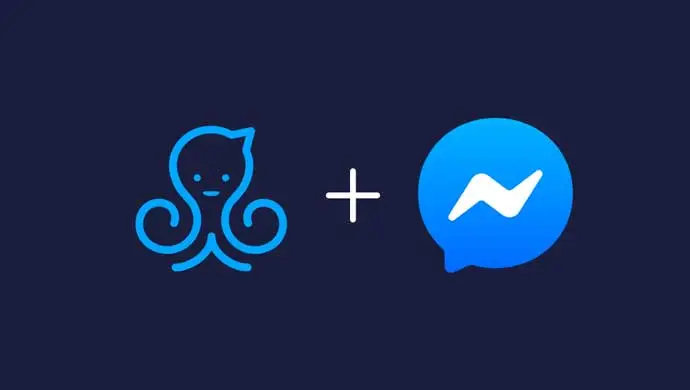What Is ManyChat
ManyChat is a conversational marketing and chatbot automation platform. It enables users — typically businesses, marketers, or content creators — to build automated chat flows across multiple messaging channels: Facebook Messenger, Instagram, WhatsApp, SMS, and more.
The goal of ManyChat is to help automate communications: lead generation, messaging sequences, broadcast messaging, engaging audiences, and integrating chatbots into marketing funnels. ManyChat emphasizes ease of use (non-technical users) with a visual “flow builder” system and pre-built templates to reduce the barrier to getting started.
In simple terms: instead of manually replying to every message or DM, ManyChat lets you build logic so your chatbot or automated sequences reply, follow up, and guide users — freeing up time and scaling your messaging.
Core Features & Capabilities
Here are ManyChat’s main features and how well they perform in practice:
1. Flow Builder & Automation
- ManyChat provides a drag-and-drop visual interface to create chat flows (conversations) using “blocks” (message, action, condition, etc.).
- You can set triggers (e.g. when someone comments, clicks a link, sends a message) to start a flow.
- Conditional logic (if / then branches), delays, randomizers, and nested automations are supported.
- You can “chain” automations: one flow triggers another, reuse subflows, etc.
This makes ManyChat flexible: simple flows for beginners, yet still powerful enough for moderate complexity.
2. Channels & Omnichannel Messaging
ManyChat supports multiple channels:
- Facebook / Messenger — strong support, first-class channel.
- Instagram — auto-responses, comment triggers, DM automations.
- WhatsApp — via template messages and approved workflows (there is additional setup / constraints).
- SMS and Telegram, plus email support in certain workflows.
- Integration with external systems (Zapier, Make, Google Sheets, CRMs) allows bridging ManyChat with backend systems.
However, each channel often requires separate configuration and sometimes separate message templates. ManyChat does not fully unify all channels such that a single message automatically adapts to all.
3. Growth Tools & Lead Capture
ManyChat offers “Growth Tools” or “Engagement Tools” to help bring users into chat flows:
- Facebook and Instagram ref URLs, comment triggers, auto-reply to comments (e.g. “DM me X”)
- Story mention triggers, Instagram auto DMs based on keywords or post comments
- Tools on WhatsApp (icebreakers, message templates) to initiate conversation.
- Broadcast messages, follow-up sequences (drip campaigns), rules that trigger actions based on user behavior (e.g. remind, follow up)
These features turn ManyChat from a passive chat tool into a marketing engine: pushing users into funnels, nurturing them, and sending promotional or informational messages.
4. AI / ChatGPT Integration, Intent Detection
More recently, ManyChat offers AI capabilities, such as intent recognition (to interpret what a user says) and integration with large language models.
For instance, ManyChat lets you route messages based on AI evaluation, validate user input (name, email etc.), and integrate with ChatGPT to enhance conversational intelligence. This adds more dynamic, “smart” behavior beyond rigid keyword triggers.
5. Live Chat / Human Handoff & Inbox
While ManyChat is mostly automated, it also supports human handoff: conversations can be transferred to real agents when required.
They offer a mobile app (iOS, Android) so agents can reply from phone. ManyChat’s “Inbox Pro” adds features like assigning conversations, analytics, team management, etc.
6. Templates, Community & Training
- ManyChat provides ~30–40+ ready-made templates (funnels, chatbots) to help users start quickly.
- It has documentation, tutorials, training content, webinars, and a user community.
- Many third-party integrations and community-built connectors expand its capabilities

Strengths & Advantages
ManyChat is one of the more popular chatbot/automation platforms for good reasons. Here are its strong points:
- Ease of Use / Learning Curve
The visual flow builder and template system make it accessible even for non-technical users. - Omni-channel Support
Ability to work across multiple messaging platforms (Instagram, Messenger, WhatsApp, SMS) gives flexibility. - Powerful Growth Tools
Built-in triggers (comments, DMs, story mentions) help automate the lead capture process and bring users into funnels. - AI & ChatGPT Integration
The ability to incorporate AI/intent detection gives more flexibility and smarter conversation flows. - Scalability
While small flows are easy, ManyChat supports organization (folders, subflows) and complexity for scaling. - Ecosystem & Integrations
Integration with Zapier, Make, CRMs, Google Sheets, etc., means ManyChat can connect to your existing systems. - Mobile / Agent-Friendly Features
The mobile app, human handoff, and team features (Inbox Pro) improve usability for real support operations.
Weaknesses & Limitations
No tool is perfect. Here are many of the criticisms and caveats for ManyChat:
- Cost Can Escalate with Scale
The pricing model is based on the number of contacts/subscribers. As your contact base grows, your monthly fee can increase a lot.
Also, additional costs (e.g. for AI add-on, increased agents, Meta messaging) may apply. - Channel-Specific Message Setup
You often need to create separate messages per channel (Messenger, Instagram, WhatsApp), which means duplicating work. - Limited Native E-commerce / Catalog Features
ManyChat is not primarily an e-commerce platform. It lacks deep, built-in catalog / product display features; connecting to e-commerce usually requires external integrations. - Multi-Language Support
Translating chatbots into multiple languages is nontrivial and not well-automated. You may need to replicate flows for each language. - Support / Customer Service Variable
Some users praise ManyChat support for being responsive, while others complain of slow or unhelpful responses.
It’s more self-service oriented; direct, high-touch support is generally reserved for higher plans. - Complexity Adds Up
For more advanced automations (APIs, heavy logic, custom integrations), the system can become intricate, and you may bump into limits or performance lags. - Messaging & Policy Constraints
Using templates or automation in channels like WhatsApp requires compliance with Meta / WhatsApp policies. Some message types may require approval. - Mixed Reviews on Pricing Transparency / Clarity
Several users on platforms like Trustpilot note confusion about pricing tiers, hidden costs, or the jump in cost as one scales.

Pricing & Plans
ManyChat offers a Free plan and Pro / Paid plan(s).
- Free Plan: Allows basic access to ManyChat features, suitable for small users or to prototype. It typically supports up to 1,000 contacts (depending on the channel) and includes a limited set of tools.
- Pro Plan: Starts around US$15 per month (or equivalent) for basic usage. As you increase the number of contacts/subscribers, your plan cost increases.
- Add-ons:
- AI add-on (for advanced AI / chat features) often costs extra (e.g. $29/month).
- Inbox Pro (advanced team/live chat features) is a higher tier or separate add-on.
- Agent seats may cost extra.
- Messaging costs (especially for WhatsApp) may incur external fees (Meta/WhatsApp) beyond ManyChat’s subscription.
Because pricing depends on contacts and additional features, many users observe that scaling aggressively can make costs rise quickly.

User Feedback & Reputation
Trustpilot & Public Reviews
On Trustpilot, ManyChat has a mixed score (around 3.4/5) with 209 reviews. Some positive feedback:
- Users appreciate the automation, ease of messaging, and how ManyChat helps reduce manual workload.
- Others express frustration with customer support and pricing tiers being unclear.
G2 & Professional Reviews
- On G2, ManyChat receives strong praise for intuitiveness, automation, and multi-channel engagement.
- Some reviewers point out that the free plan is quite limited for serious use.
- A few point to issues like integration failures or overpromised support.
Independent Reviews / Analysts
- Reviewers like Tidio’s blog highlight ManyChat’s strengths in Growth Tools and ease of setup, but caution about limited AI features and missing a native site chat widget.
- Erwin van Ginkel’s review praises WhatsApp automation, flow builder, and AI integration, but notes that pricing and deeper features may require more advanced skills.
- Community posts (e.g. Reddit) show users successfully using ManyChat to automate replies to high engagement (comments → DMs) and managing large volumes of messages.
Overall, user sentiment leans positive for usefulness and innovation, but criticism often centers on cost, support, and scaling complexities.
Use Cases / Ideal Scenarios
ManyChat is particularly well suited for:
- Small to medium businesses that want to automate social media messaging (Instagram, Facebook) and capture leads without heavy technical overhead.
- Influencers / Content creators who run “Comment to DM” campaigns, auto DMs, or giveaways and need to scale messaging.
- E-commerce / Retail (with integrations) to send promotional messages, abandoned cart follow-ups, and conversion funnels.
- Service-based businesses scheduling, reminders, follow ups via chat.
- Marketing agencies managing chat funnels for clients.
It may be less ideal if:
- You need extremely deep customization, custom AI, or full control beyond what ManyChat allows.
- You are heavily multi-lingual and need seamless translation across flows.
- You’re operating at a scale where cost explosiveness becomes a concern.
- You need highly robust, enterprise-grade support, dedicated account management, or voice features (ManyChat focuses on text chat).
Final Verdict & Recommendation
ManyChat is a powerful, well-rounded, and accessible chatbot / conversational marketing tool. For many businesses and marketers, it strikes an excellent balance between ease of use and functional depth.
Pros in summary:
- Simple, visual flow builder (low learning curve)
- Omnichannel messaging support
- Strong lead capture and growth tools
- AI / intent features to make conversations smarter
- Integrations to tie into your existing systems
- Community, templates, support resources
Cons to bear in mind:
- Cost rises with contact volume and additional features
- You often must craft per-channel messages
- Less suited for heavy e-commerce or advanced custom logic without integration
- Support is sometimes inconsistent or limited for lower tiers
- Multi-language and scaling complexities
In conclusion: If you are a business or marketer looking to automate social messaging, generate leads, save time, and are comfortable growing gradually (with awareness of costs), ManyChat is a strong option. If your needs are extremely advanced, or scaling fast with thousands of contacts, you might also evaluate enterprise or more developer-oriented alternatives.
If you like, I can also prepare a shorter, localized ManyChat review (for your region or language), or compare ManyChat vs alternatives. Do you want me to do that?


